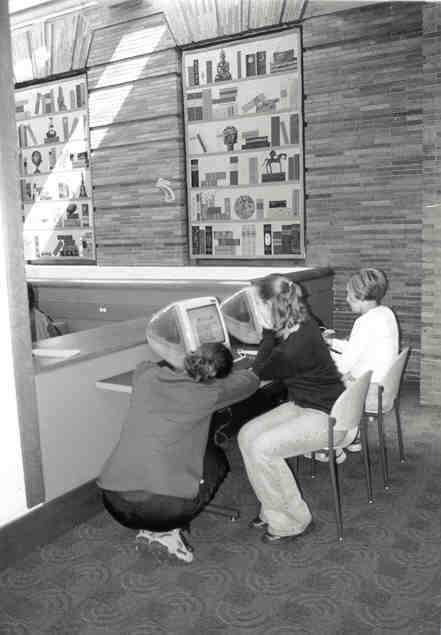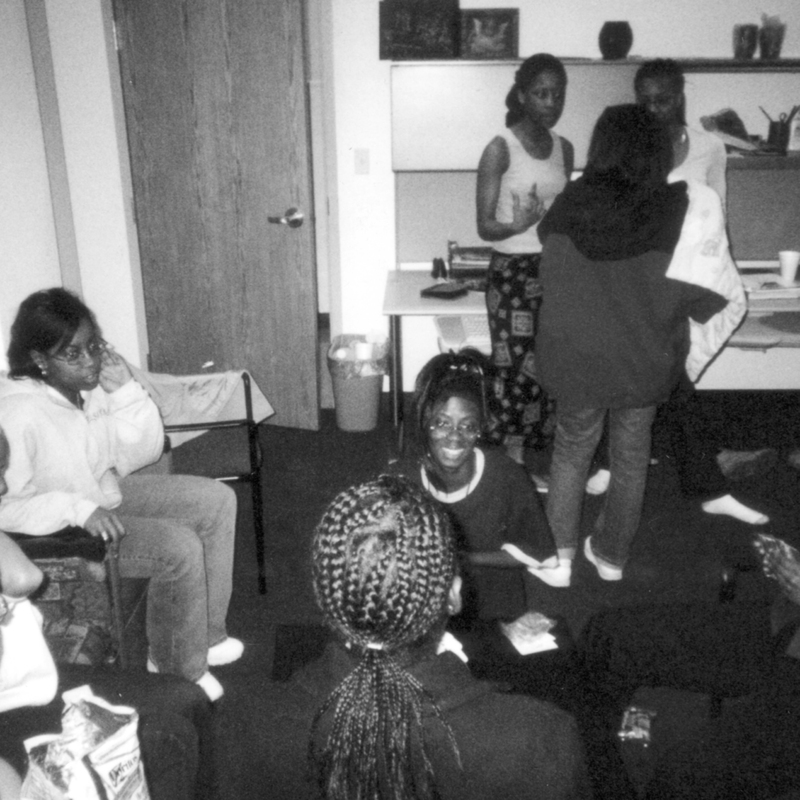Modern Simmons, 2000-2024
Reaffirming the modern mission of Simmons, President Helen Drinan, eighth president of the College, articulated her vision for the 21st century when she stated:
“Simmons will become a beacon of leadership in the world of higher education; a resource to our nation and world; known for our expertise in fields which improve the human condition; sought out for the findings of our highly reputable research; and seen as the global expert in educating women for their own empowerment and for leadership.”
Despite the monumental challenges imposed by the 2008 financial crisis, Simmons has continued to grow and evolve in the 21st century. Notably, online programs were established and expanded, bringing the mission of Simmons beyond the bounds of the academic and residential campuses.
The 2018 reorganization of Simmons’s school structure has fostered interdisciplinary learning and cross-departmental collaboration among the College of Natural, Behavioral, and Health Sciences; College of Organizational, Computational, and Information Sciences; College of Social Sciences, Policy, and Practice; and the Gwen Ifill College of Media, Arts, and Humanities. The reorganization further modernized the curriculum and shifted Simmons from a college to university designation.
The fight for a more inclusive community continues in the 21st century. In 2014, Simmons became one of the the earliest historically women’s colleges to release an official policy accepting trans* students, citing a tradition of empowering women, challenging gender roles, and a rich history of inclusion–even if the pursuit of such has not always been perfect.
The Black Student Organization (BSO) has also remained active in the community. The group issued an updated Ten Demands in 2015, citing a lack of support by the administration for minority students at Simmons. Administration responded with a list of actions taken to support the 2015 Ten Demands, including increased programming, curriculum changes, managing bias reports, an increase in diverse faculty, staff, and students, and making diversity, equity, and inclusion more prominent in the institution’s strategic plan. Additional changes included the opening of the Multicultural Center in 2018 to create space for growth and healing for systematically marginalized community members, offer educational opportunities for understanding social inequities, and provide tools to create positive change both at Simmons and beyond (Multicultural Center Mission Statement).
Other student groups have raised their voices towards a more inclusive community. Examples include, but are not limited to, the Islamic Society, Organizacion Latino Americana, and the Multicultural and International Student Organization.
The PLAN program is also a hallmark of 21st-century Simmons. The PLAN program is an interdisciplinary approach to coursework with a social justice and community-service orientation accompanied by faculty mentorship. PLAN has continued the Simmons tradition of a practical education conscious of the modern educational and professional spheres, with an orientation toward community service and social justice.
Simmons has also continued its long history of community service with the Scott Ross Center for Community Service in 2001 and the Stephen D. London Center for Community Engagement and Social Justice designated in 2022. Indeed, more than 430 students completed over 16,260 hours of community service during the 2022-2023 academic year alone.
As academic offerings, the social landscape, and support for marginalized members of Simmons have changed in the 21st century, so has the University’s vision of its physical space. One Simmons and the Living and Learning Center will bring the community together with dorm rooms, classrooms, dining, and athletic facilities into a centralized space. This endeavor was supported by the 2022 renovations of Lefavour Hall and Beatley Library that created innovative lab and study spaces under the direction of Lynn Perry Wooten from 2020. Wooten is Simmons’s ninth president and the institution’s first Black president.
Simmons continues to evolve and provide opportunities for its students to acquire an independent livelihood in the 21st century. John Simmons’s original mission has both endured and expanded throughout the institution’s history, guiding administrators, inspiring faculty, and shaping the ethics of students and alumnae/i for over 125 years.

